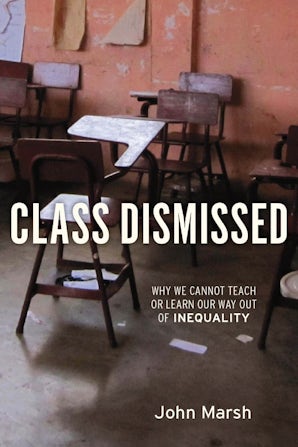Class Dismissed reviewed in The Progressive Populist
Education Not Enough Without Respect for Labor
by Seth Sandronsky
November 1, 2011
This much is true. Americans with bachelor’s degrees and up earn higher pay than high school grads. Yet a third of the future jobs statewide created in the next 10 years, will require, at most, no more than a 12th-grade education. Meanwhile, US income inequality and poverty has been rising over the past three decades. Why has and does education bear the burden that it does for what ails the nation’s populace?
In Class Dismissed: Why We Cannot Teach or Learn Our Way Out of Inequality, author John Marsh tackles the education premium and related issues of schools and social structure.
His thesis is simple. Marsh argues against the conventional wisdom, from the handmaidens of Wall Street on 1600 Pennsylvania Ave. to the statehouses and city halls across the US, of education ruling policy discussions about addressing inequality and poverty.
In short, Marsh’s narrative is that elected lawmakers can and should do more than repeat the tired and tiring line that education is the only path to prosperity. The rub is that common people must organize to open up new paths.
Well, what’s happening abroad? Marsh looks at policies of other industrialized countries. He shows how such societies do progressive social policy. They pay to improve low- and mid-income people’s lives. Why the unwillingness to do so in the US?
The power of the working class, notably organized labor, to set the policy agenda is weak. Case in point, as Marsh writes, is the failure of the House of Labor to advance the Employee Free Choice Act boosting workers’ opportunities to form unions and bargain first contracts with employers, when Democrats controlled the White House and Congress!…
Read the entire review here

